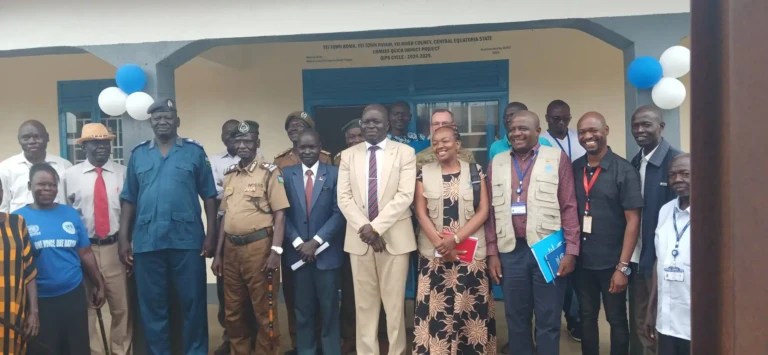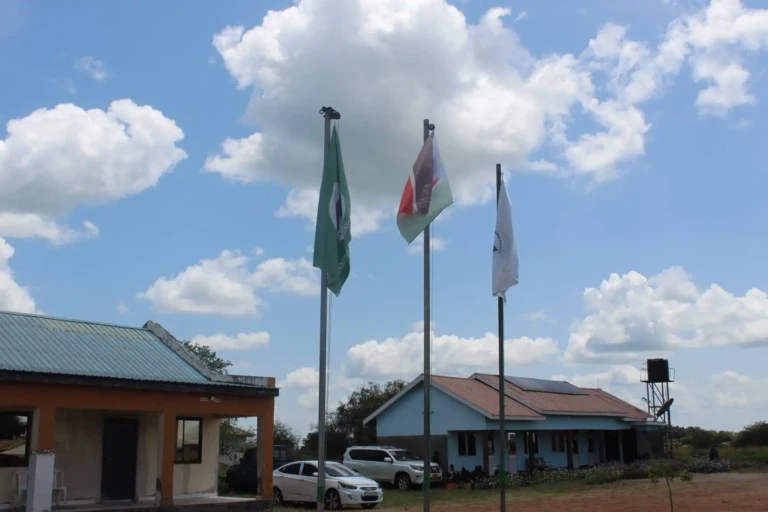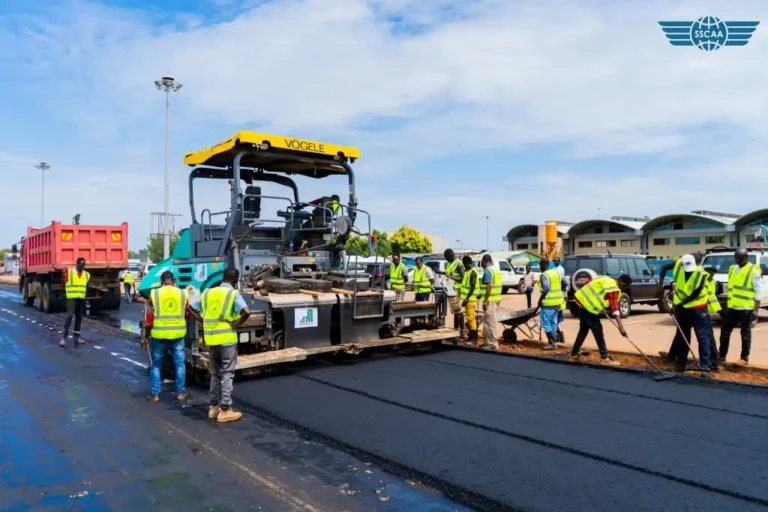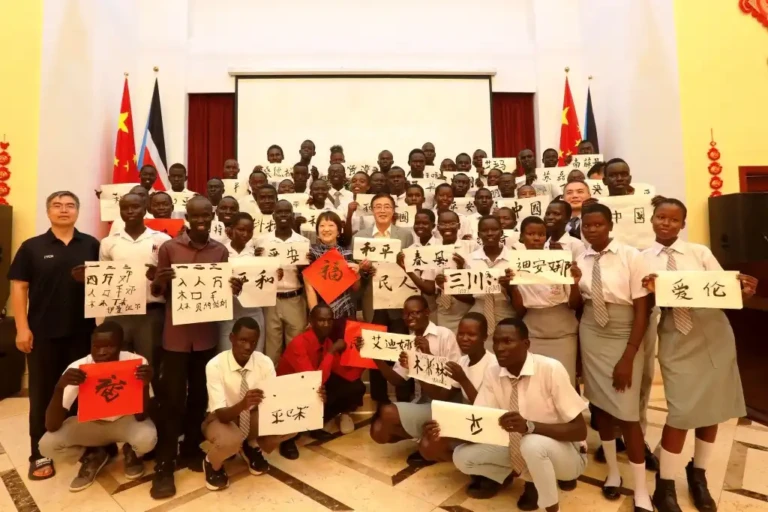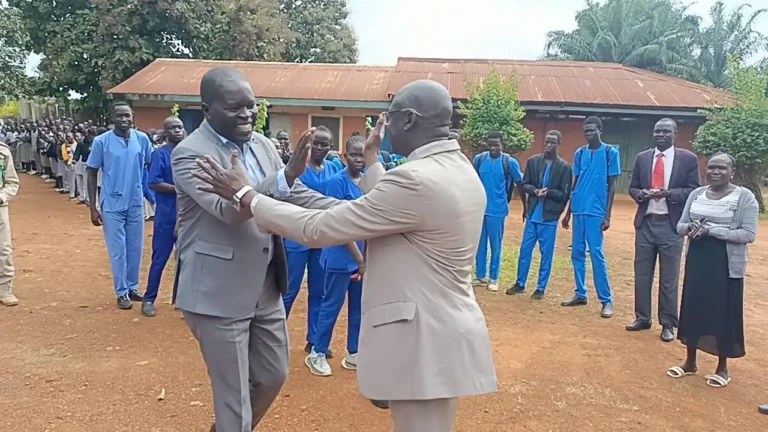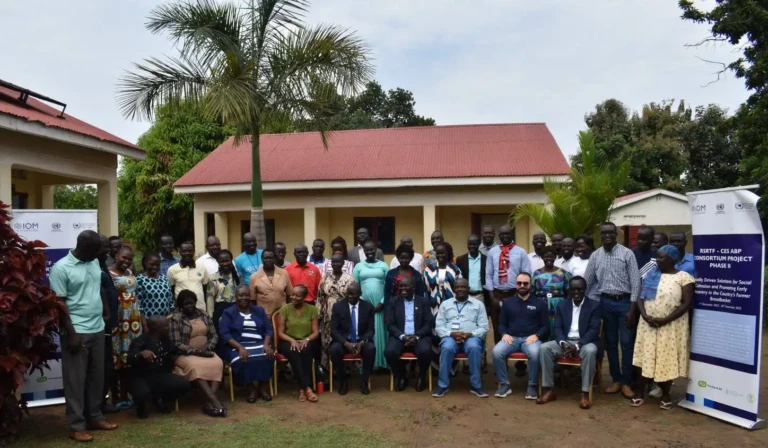
(Minneapolis) – A sudden freeze on U.S. visa applications and revocations for South Sudanese passport holders has caused widespread concern and heartbreak among South Sudanese families living in Minnesota and across the United States. Many, like Angok Gai, a U.S. citizen, are now separated from their loved ones with no clear path to reunification.
Gai lives and works in the Twin Cities while his wife and two daughters reside in Uganda. He moved them there from South Sudan for their safety and education. In 2024, he submitted visa applications to bring them to the U.S., but their hopes were disrupted in April when the U.S. State Department suspended all new visa issuances from South Sudan and began revoking previously issued visas.
“I moved them to Uganda because it’s safer and they can go to school,” Gai said. “Now, I’m out of my family’s life, and I need my kids close to me.”
The visa suspension has alarmed South Sudanese Americans in Minnesota, many of whom were already uncertain about their immigration status. The measure came shortly before the expiration of Temporary Protected Status (TPS) for South Sudanese nationals on May 3, adding to the community’s anxiety. The U.S. government has also expanded its travel ban to include 12 countries, among them neighboring Sudan, and has attempted deportations to South Sudan, despite ongoing unrest there.
More than 3,500 people with Sudanese ancestry live in Minnesota, according to recent Census Bureau data. Many arrived as refugees in the 1990s and built communities in places like Mankato, Rochester, Austin, and Fargo-Moorhead. Today, they face growing uncertainty.
In Fargo, Matuor Alier, director of the Community Connect Center, says the center has received dozens of reports from people who were notified their visas had been revoked. His organization has responded by offering “Know Your Rights” training to educate community members on how to deal with encounters with immigration officers.
Fowzia Adde, who leads the Immigrant Development Center in Moorhead, said her group has been helping several South Sudanese refugees navigate the current situation, including a woman whose husband’s visa interview in Nairobi was never scheduled. “This will slow down family reunions,” she said.
Legal experts describe the visa policy as overly broad. Julia Decker, policy director at the Immigrant Law Center of Minnesota, said the revocation covers all visa categories—from students and workers to diplomats and athletes.
“There are so many variables,” Decker explained. “What happens next depends on each person’s visa type, immigration history, and family or employment connections. The most important step is for people to speak to an immigration attorney.”
The policy change also comes as South Sudan faces growing political instability. The country is still recovering from its last civil war, which began in 2013, and recent tensions among political leaders have raised fears of renewed conflict.
Despite the challenges, the South Sudanese diaspora in Minnesota and North Dakota continues to thrive. Adde described them as hardworking and deeply rooted in their new communities. “They own homes, pay taxes, and contribute to society. It’s a vibrant and strong community,” she said.
Still, the visa freeze has cast a shadow over their future. A South Sudanese pastor in the region, who asked to remain anonymous, said many are struggling to understand the full impact of the government’s action. “We are trying to stay alert and see what can be done,” he said.
Gai’s nephew, Bol Bolgai, a community organizer in the Twin Cities, said the entire South Sudanese population feels they are being punished for the refusal of South Sudan’s government to accept a deportee—who was later found to be Congolese. “We’re a politically literate and resilient community,” Bolgai said. “Even though we’re anxious, we’ll stay vigilant.”
For Gai, weekends are now reserved for phone calls with his wife and daughters. He sends money to cover rent, food, and school fees in Uganda. But the emotional cost weighs heavily on him.
“One of my biggest worries is how my absence will affect my children’s lives,” he said. “I just want my kids near me.”
Discover more from Access Radio Yei News
Subscribe to get the latest posts sent to your email.

